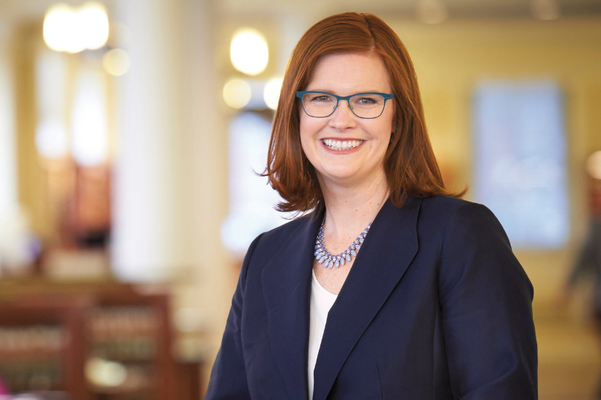Erin Murphy Appointed to NY State Commission on Forensic Science

Erin E. Murphy, Reporter on the Model Penal Code: Sexual Assault project and Norman Dorsen Professor of Civil Liberties at New York University School of Law, has been appointed to the New York State Commission on Forensic Science, where she will serve through September 2025. Created in 1994 by the state legislature, the commission is tasked with developing minimum standards and a program of accreditation for forensic laboratories across New York.
“My research and scholarship has heavily focused on DNA and forensics,” says Murphy. “And so it is a wonderful opportunity to bring some of that work to bear more directly on issues that affect people’s lives.”
Murphy joins the 14-member body at the recommendation of Rowan Wilson, chief judge of the New York Court of Appeals. Her research centers on the criminal legal system, with a particular focus on procedural questions related to policing and new technologies, substantive questions related to sexual assault and drug policy, and evidentiary questions related to forensic science. An expert on forensic DNA typing, Murphy is the author of Inside the Cell: The Dark Side of Forensic DNA and co-editor of the Modern Scientific Evidence treatise.
From 2021 to 2022, she served as senior policy advisor for criminal justice at the White House Domestic Policy Council. Murphy has also brought her scholarship to broad audiences through articles in publications such as Scientific American, the New York Times, the Washington Post, the Atlantic, and many others, and through commentary for media outlets that include NPR, PBS, CNN, Fox, MSNBC, and NBC Nightly News. She clerked for Judge Merrick Garland on the US Court of Appeals for the DC Circuit and spent five years as an attorney at the Public Defender Service for the District of Columbia.
Amid a continuing wave of wrongful conviction cases, in addition to rapid advances in data science and artificial intelligence, New York’s forensic commission is currently at the center of a renewed legislative push for reform. Murphy is looking to play an active role. “Technologies like DNA testing or the development of large-scale biometric databases offer exciting new approaches to public safety,” she says, “but they also require real sensitivity to issues of quality control, privacy, and racial justice. I’m excited to have these conversations in service of the safety and well-being of all those in New York.”
